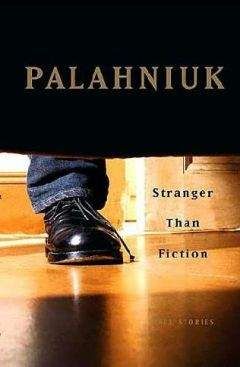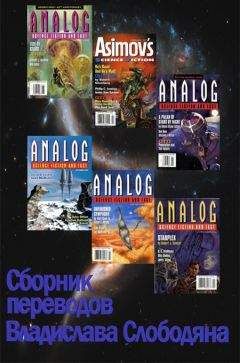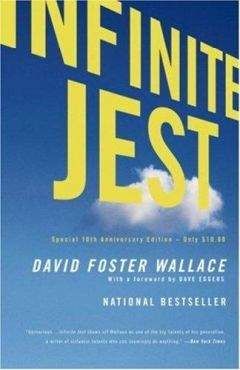"Title IX, that's a major factor," says Mike Engelmann. "All those colleges are getting screwed out of their wrestling programs because we have to have an equal amount of sports. I don't want to sound like a sexist or anything, but I really don't believe in it."
Even Olympic champion Kevin Jackson says, "I have a son, and he's started to wrestle a little bit, but he does tae kwon do, soccer, basketball, and I really hesitate to push him toward wrestling in any way because it is such hard work for little reward."
Still sitting near his shoes in the almost empty arena, Phil Lanzatella talks about his children, "More to the point, I'd push them to tennis or golf. Something noncontact, with lots of money."
Jackson says, "So many people around the country have wrestled, or they know someone who wrestled. They have some connection to it. We just have to do a better job of promoting our athletes so folks watching TV can make that connection."
"These guys," Engelmann says, "I'm sure all their kids are going to wrestle, too. And that's why it's not going to die. I want to have kids, and I'm not going to push it on them, but I hope they're going to want to wrestle."
Phil Lanzatella has a plane to catch, too.
"Maybe all this energy can be funneled into monetary gains," he says. He's been approached about writing a book. "Now I have the time to reflect and certainly the stories. From 1979 through today. I've been through about every aspect. Running for state legislator… going out with Mondale's daughter when we boycotted the Olympics in 80… being a part of five Olympic teams-that's never been done before. Yeah, there's a lot."
He picks up his shoes and says, "I still have to call my wife…"
"It feels so good when you stop," says high school wrestling coach Steve Knipp. "It's such a demanding thing when you're doing it that when you stop cutting weight and get to eat, you never appreciated food so much in your life. Or when you get to just sit down, you never appreciated that chair so much. Or when you get to take a drink of water, you never appreciated water so much."
And now Lanzatella, Harrington, Lewis, Kim, Rodrigues, Jackson, Petersen, all those ears. Davis, Wilson, Bigley, all those stalactite cauliflower ears are diffused out into the big world, where they'll blend in. Into jobs. Into families.
Where they'll only ever be noticed by other wrestlers.
Keith Wilson says, "It's a small family, but everybody knows each other."
And maybe amateur wrestling is dying, but maybe not.
At the Olympic team finals in Dallas, there are 50,170 paying spectators, and big-money corporate sponsors including Bank of America, AT&T, Chevrolet, and Budweiser.
In Dallas, one wrestler asks to perform an old ritual to mark the last match of his career. In this tradition, the wrestler puts his shoes in the center of the mat and covers them with a handkerchief. With the crowd silent, the wrestler kisses the mat and leaves his shoes behind.
Sean Harrington says, "I got a friend who used to tell me, 'If I wrestled, I'd be the best. I know I'd be the best. I know I could. But he didn't. He didn't do it. So he could always just think that he could've been the best, but he never actually put on the shoes and went out and did it."
He says, "Just the fact that you've accomplished, and you've set your goals and you went after them, and you never were a 'woulda, shoulda, coulda. You actually did it."
No one mentioned in this article made the Olympic team.
In the ballroom at the Airport Sheraton Hotel, a team of men and women sit inside separate booths, curtained off from each other. They each sit at a small table, the curtains enclosing a space just big enough for the table and two chairs. And they listen. All day, they sit and listen.
Outside the ballroom, a crowd waits in the lobby, writers holding book manuscripts or movie screenplays. An organizer guards the ballroom doors, checking a list of names on a clipboard. She calls your name, and you step forward and follow her into the ballroom. The organizer parts a curtain. You take a seat at the little table. And you start to talk.
As a writer, you have seven minutes. Some places you might get eight or even ten minutes, but then the organizer will return to replace you with another writer. For this window of time, you've paid between twenty and fifty dollars to pitch your story to a book agent or a publisher or movie producer.
And all day, the ballroom at the Airport Sheraton is buzzing with talk. Most of the writers here are old-creepy old, retired people clutching their one good story. Shaking their manuscript in both spotted hands and saying, "Here! Read my incest story!"
A big segment of the storytelling is about personal suffering. There's the stink of catharsis. Of melodrama and memoir. A writer friend refers to this school as "the-sun-is-shining-the-birds-are-singing-and-my-father-is-on-top-of-me-again" literature.
In the lobby outside the hotel ballroom, writers wait, practicing their one big story on each other. A wartime submarine battle, or being knocked around by a drunk spouse. The story about how they suffered, but survived to win. Challenge and triumph. They time each other with wristwatches. In just minutes, they'll have to tell their story, and prove how it would be perfect for Julia Roberts. Or Harrison Ford. Or, if not Harrison, then Mel Gibson. And if not Julia, then Meryl.
Then, sorry, your seven minutes is up.
The conference organizer always interrupts at the best part of the pitch, where you're deep into telling about your drug addiction. Your gang rape. Your drunken dive into a shallow pool on the Yakima River. And how it would make a great feature film. And, if not that, then a great cable film. Or a great made-for-television movie.
Then, sorry, your seven minutes is up.
The crowd out in the lobby, each writer holding his story in his hand, it's a little like the crowd here last week for the Antiques Road Show. Each person carrying some burden: a gilded clock or a scar from a house fire or the story of being a married, gay Mormon. This is something they've lugged around their whole life, and now they're here to see what it will fetch on the open market. Just what is this worth? This china teapot, or crippling spinal disease. Is it a treasure or just more junk.
Then, sorry, your seven minutes is up.
In the hotel ballroom, in those curtained cubicles, one person sits passive while the other exhausts himself. In that way, it's like a brothel. The passive listener paid to receive. The active speaker paying to be heard. To leave behind some trace of himself-always hoping this trace is enough to take root and grow into something bigger. A book. A baby. An heir to his story, to carry his name into the future. But the listener, he's heard it all. He's polite, but bored. Hard to impress. This is your seven minutes in the saddle-so to speak-but your whore is looking at his own wristwatch, wondering what's for lunch, planning on how to spend the stipend money. Then…
Sorry, your seven minutes is up.
Here's your life story, but reduced to two hours. What was your birth, your mother going into labor in the backseat of a taxi-that's now your opening sequence. Losing your virginity is the climax of your first act. Addiction to painkillers is your second-act build. The results of your biopsy is your third-act reveal. Lauren Bacall would be perfect as your grandmother. William H. Macy as your father. Directed by Peter Jackson or Roman Polanski.
This is your life, but processed. Hammered into the mold of a good screenplay. Interpreted according to the model of a successful box-office hit. It's no surprise you've started seeing every day in terms of another plot point. Music becomes your soundtrack. Clothing becomes costume. Conversation, dialogue. Our technology for telling stories becomes our language for remembering our lives. For understanding ourselves. Our framework for perceiving the world.
We see our lives in terms of storytelling conventions. Our serial marriages become sequels. Our childhood: our prequel. Our children: spin-offs.
Just consider how fast everyday people started using phrases like "fade to black." Or "wipe dissolve." Or fast-forward. Jump cut to… Flash back to… Dream sequence… Roll credits…
Then, sorry, your seven minutes is up.
It's twenty, thirty, fifty dollars for another seven minutes. For another shot at connecting with the bigger world. For selling your story. To turn that misery into big money. Book-advance money, or movie-option money. That big mega-jackpot.
A few years ago, only a few of these conventions shipped industry players from New York and Los Angeles, put them up in hotels, and paid them a stipend to sit here and listen. Now there are so many conventions that organizers must scrape the barrel a little, looking for any producer's assistant or associate editor who can spare a weekend to fly out to Kansas City or Bellingham or Nashville.
This is the Midwest Writers Conference. Or the Writers of Southern California Conference. Or the Georgia State Writers Conference. As a hopeful writer, you've paid to get in the door, for a name badge and a keynote lunch. There are classes to attend, lectures about technique and marketing. There's the mixed comfort and competition of other writers. Fellow writers. So many of them with a manuscript under one arm. You pay the extra money, the seven-minute money, to buy the ear of an industry player. To buy the chance to sell, and maybe you'll walk away with some money and recognition for your story. An experiential lottery ticket. A chance to turn lemons-a miscarriage, a drunk driver, a grizzly bear-into lemonade.
Straw, but spun into gold. Here in the big storytelling casino.
Then, sorry, your seven minutes is up.
In another way, this hotel ballroom, it's filled with people telling about their one awful crime. Spilling their guts about how they aborted a child. How they smuggled drugs stuffed up their ass all the way from Pakistan. Here's how they fell out of grace, the opposite of a hero's story. Here's how they can sell even their bad example-how it can help others. Prevent similar disasters. These people are here to find redemption. To them, each curtained booth becomes a confessional. Each movie producer, a priest.
It's no longer God waiting in judgment. It's the marketplace.
Maybe a book contract is the new halo. Our new reward for surviving with strength and character. Instead of heaven, we get money and media attention.
Maybe a movie starring Julia Roberts, bigger than life and pretty as an angel, is the only afterlife we get.
And that's only if… your life, your story is something you can package and market and sell.
In another way, this is so much like the crowd here last month, when a television game show was auditioning contestants. To answer brain teasers. Or the month before, when producers for a daytime talk show were here, looking for troubled people who wanted to air their problems on national television… fathers and sons who've shared the same sex partner. Or mothers suing for child support. Or anyone getting a sex change.
Then, sorry, your seven minutes is up.
The philosopher Martin Heidegger pointed out how human beings tend to look at the world as a standing stock of material, ready for us to use. As inventory to be processed into something more valuable. Trees into wood. Animals into meat. He called this world of raw natural resources: bestand. It seems inevitable that people without access to natural bestand such as oil wells or diamond mines, that they'd turn to the only inventory they do have-their lives.
More and more, the bestand of our era is our own intellectual property. Our ideas. Our life stories. Our experience.
What people used to endure or enjoy-all those plot-point events of potty training and honeymoons and lung cancer-now they can be shaped to best effect and sold.
The trick is to pay attention. Take notes.
The problem with seeing the world as bestand, Heidegger said, was it leads you to use things, enslave and exploit things and people, for your own benefit.
With this in mind, is it possible to enslave yourself?
Martin Heidegger also points out that an event is shaped by the presence of the observer. A tree falling in the forest is somehow different if someone is there, noting and accenting the details in order to turn it into a Julia Roberts vehicle.
If only by distorting events, tweaking them for more dramatic impact, exaggerating them to the point you forget your actual history-you forget who you are-is it possible to exploit your own life for the sake of a marketable story?
But then, sorry, but your seven minutes is up.
Maybe we should've seen this coming.
In the 1960s and 70s, televised cooking shows coaxed a rising class of people to spend their extra time and money on food and wine. From eating, they moved on to cooking. Led by how-to experts like Julia Child and Graham Kerr, we exploded the market for Viking ranges and copper cookware. In the 1980s, with the freedom of VCRs and CD players, entertainment moved in to become our new obsession.
Movies became the field where people could meet and debate, like they did over soufflés and wine a decade before. Like Julia Child had, Gene Siskel and Roger Ebert appeared on television and taught us how to split hairs. Entertainment became the next place to invest our extra time and money.
Instead of the vintage and bouquet and legs of a wine, we talked about the effective use of voice-over and backstory and character development.
In the 1990s, we turned to books. And instead of Roger Ebert it was Oprah Winfrey.
Still, the really big difference was, you could cook at home. You really couldn't make a movie, not at home. But, you could write a book. Or a screenplay. And those do become movies.
The screenwriter Andrew Kevin Walker once said that no one in Los Angeles is ever more than fifty feet from a screenplay. They're stowed in the trunks of cars. In desk drawers at work. In laptop computers. Always ready to be pitched. A winning lottery ticket looking for its jackpot. An uncashed paycheck.
For the first time in history, five factors have aligned to bring about this explosion in storytelling. In no particular order the factors are:
Free time.
Technology.
Material.
Education.
And disgust.
The first seems simple. More people have more free time. People are retiring and living longer. Our standard of living and social safety net allows people to work fewer hours. Plus, as more people recognize the value of storytelling-but strictly as book and movie material-more people see writing, reading, and research as something more than just a highbrow recreation. Writing's not just a nice little hobby. It's becoming a bona fide financial endeavor worth your time and energy. Telling anyone that you write always prompts the question "What have you published?" Our expectation is: writing equals money. Or good writing should. Still, it would be damn near impossible to get your work seen if not for the second factor:
Technology. For a small investment, you can be published on the Internet, accessible to millions of people worldwide. Printers and small presses can provide any number of on-demand hard-copy books for anybody with the money to self-publish. Or subsidy publish. Or vanity publish. Or whatever you want to call it. Anybody who can use a photocopy machine and a stapler can publish a book. It's never been so easy. Never in history have so many books hit the market each year. All of them filled with the third factor:





